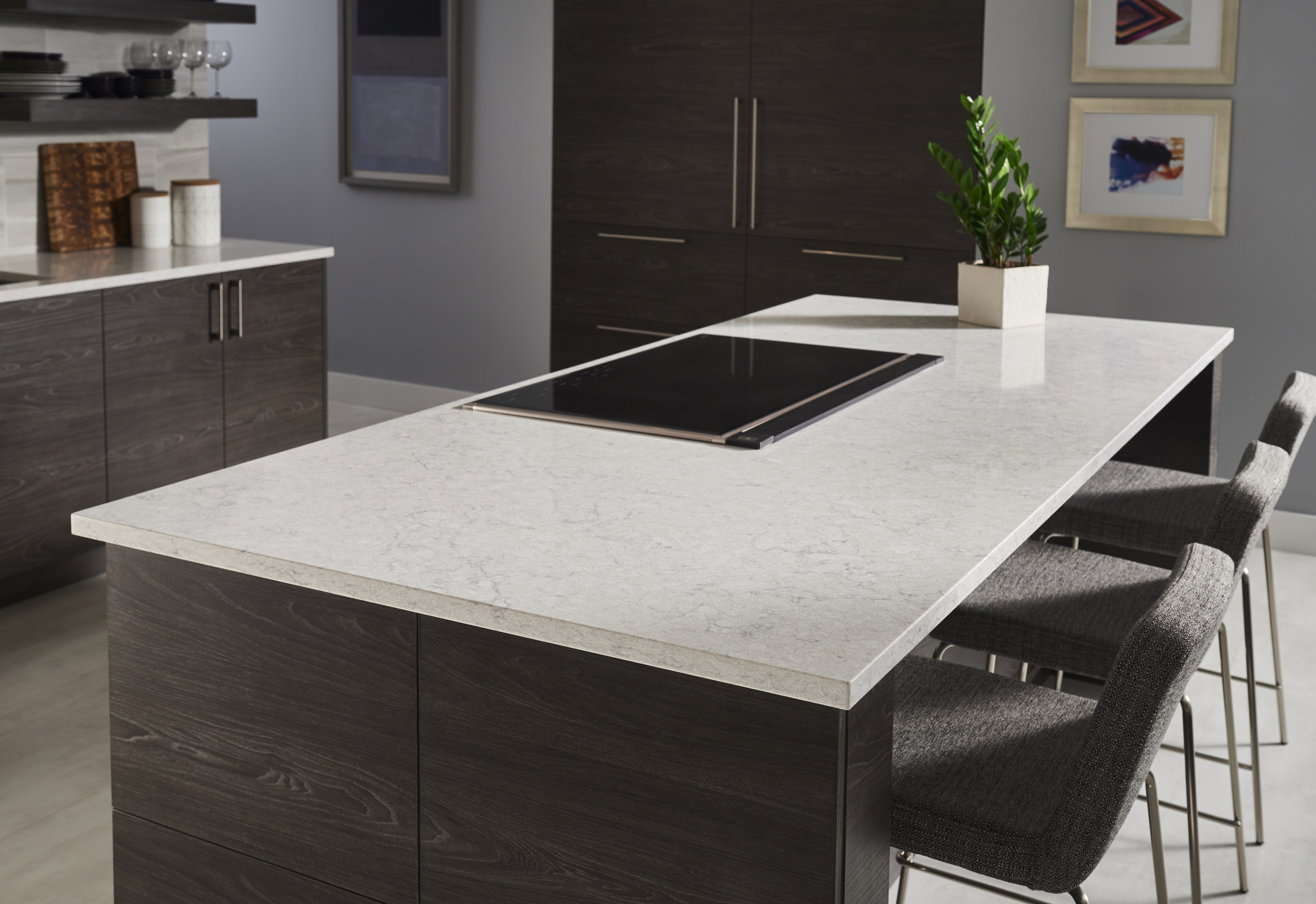When it comes to countertops, there are lots of options to choose from. However, Granite and quartz remain two of the most popular options, for some very good reasons. While they share some qualities, there are distinctions that are worth exploring.
Below is a breakdown of granite vs quartz countertop attributes. This countertop material comparison can help you get an idea of the pros and cons of each. Keep reading to determine which one might be the best countertop material for your home.
Appearance
When comparing granite vs quartz countertop features, the first thing to look at is appearance. Granite is natural stone, meaning each slab is unique. Each granite countertop will have its own pattern and color variations.
Most granite has distinct veining and speckling. It comes in earthy black, white, gray, and brown tones, which yield a more natural look.
Quartz is one of the most abundant minerals on the Earth. Quartz countertops are engineered, which means they can be made to achieve a specific appearance, including desired patterns.
Optional quartz countertops colors include classic white, gray, and black, but they also can come in almost any hue or shade. Most people choose it if they prefer a more uniform look.
Price
In general, the price of a quartz countertop will tend to be slightly more than that of granite. However, several factors can push the price of either up or down with either material. These include:
- Quality
- Thickness
- Installation costs
- Regional pricing
Like any other product, high-quality quartz or granite, such as Calacatta gold quartz, will cost more than cheaply manufactured ones. The thickness of the slab also can impact the price. The complexity of the installation also can influence the final price tag, though neither material is more difficult to install than the other.
Environmental Friendliness
When it comes to environmental impact, there are several quartz and granite countertop pros and cons. Both materials are highly durable, which reduces the need for frequent replacement.
Granite and quartz are both abundant minerals. The manufacturing process for quartz can be energy-intensive and uses various resins and pigments that are not needed to make granite countertops.
Maintenance
Quartz is non-porous, so regular cleaning is all that is required. Granite is porous, so must be sealed regularly to achieve resilience. You should avoid using harsh chemicals when cleaning either surface.
Durability
Both granite and quartz are exceedingly durable. They are scratch- and heat-resistant and can both endure heavy use for decades.
Since quartz is non-porous, it is not susceptible to bacteria or stains from liquids. As mentioned, granite needs to be sealed to avoid staining or the accumulation of bacteria.
Repair
When you compare granite and quartz repairability, both perform well. Minor scratches can be buffed out, and chips and cracks can be filled using special repair kits. More significant damage may require professional restoration or replacement.
Learn More About Granite vs. Quartz Countertop Benefits
Both granite and quartz are great options for countertops. The guide above, along with advice from an experienced retailer, can help you determine if a granite vs quartz countertop is right for you.
Since 1946, LX Hausys has provided the highest quality, eco-conscious materials to customers looking for aesthetically stunning floors and surfaces. Contact us today to learn more about quartz countertops.
